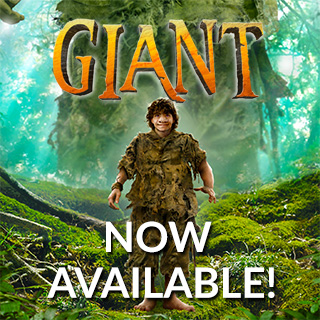Writing Fantasy: An Interview with University of Washington
Does writing fantasy provide unique challenges compared to other genres?
T. A. Barron: Fantasy allows you to bend the rules of our existence, like a bent mirror. Through that mirror, we can reflect the reality of our experience with more intricacy and power – bending life – emphasizing certain elements and de-emphasizing others.
Any good fantasy needs several levels of realism to work. There is the realism of place. Do I feel like I’m actually there? If I’ve just washed ashore, do I smell the briny breeze? Do I hear the screeching gulls? Do I feel the roughness of the sand? As a writer, my job is to make sure I describe the fantasy world with such accuracy and detail that readers can really experience it. Place, to me, is much more than just a backdrop. It’s really a form of character. And it needs to be every bit as real and complex – and even contradictory – as a human character.
There is also the realism of emotion. Have I ever felt the way the character feels? Am I moved by the character’s struggle? Do I believe the character’s pain or joy, fear or hope? Again, I must choose the words that will allow readers to experience their own emotions.
Finally, there is a deeper level of realism, a level that goes beyond the senses, beyond the emotions – all the way to the spirit. Why does this ring so true? What do I now know about the human condition? What am I experiencing that all people in all cultures and all times have experienced? At this level, the writer can touch the basic yearnings, hopes, fears, gains, and losses of humanity. It’s what makes some stories universal.
All genres have these challenges … but it’s more so with fantasy. To make alternate worlds and imaginary creatures come to life is hard – but tremendously rewarding if you succeed. Also, fantasy gives us a superb opportunity to wrestle with some of life’s biggest questions in the context of a good old-fashioned page-turner. For example, telling the story of Merlin’s lost youth allowed me to explore the idea that all of us, whatever our backgrounds, have a magical person hidden down inside of ourselves. Just like that unknown boy who washed ashore, each of us has the potential to reach for the stars.
Why did I decide to write about Merlin and not some other wizard? Because Merlin is simply fascinating, full of richness and depth as a character. Think about it: People have been telling stories about this character for over fifteen hundred years. That is because Merlin stands for three basic ideals: the universality of all people; the importance of embracing both the light and dark within ourselves; and the sacredness of nature.
First, take universality. When you look at the original Celtic tales, Merlin’s role was truly astounding: He was the bridge between Druids and Christians, nobles and peasants, archbishops and old gray wolves. Then take the light and dark within him. Merlin’s understanding of his own weaknesses and strengths made him far more humble, compassionate, and wise. Finally, nature is Merlin’s greatest teacher – a source of wisdom, healing, and inspiration. We don’t need to look far to see the importance of these same ideals today.
Plus something more personal: The young man I wrote about in The Lost Years of Merlin books is a lot like you and me. Right from the moment he washes ashore, more dead than alive, young Merlin has struggles, sorrows, fears, joys, and secret aspirations. And he also has, hidden deep within himself, a certain inner magic. So just like the rest of us, he is burdened by the human experience while at the same time exalted by it. Just like the rest of us, he can wash ashore … and also climb to the stars.
If you were stranded on a fringe planet, which three items would you bring?
T. A. Barron: Of course, if I were stranded on a fringe planet, I’d want to wear my fringe hat. But I would need three essential items:
1. An inexhaustible writing pen (standard issue for all space travelers).
2. A magical book that holds every story or poem I would like to read, plus blank pages for me to write upon.
3. A beautiful young woman who loves to sing. She would have a long braid of hair, a loving heart, a boundless sense of wonder, a quirky sense of humor, and call herself Currie.

